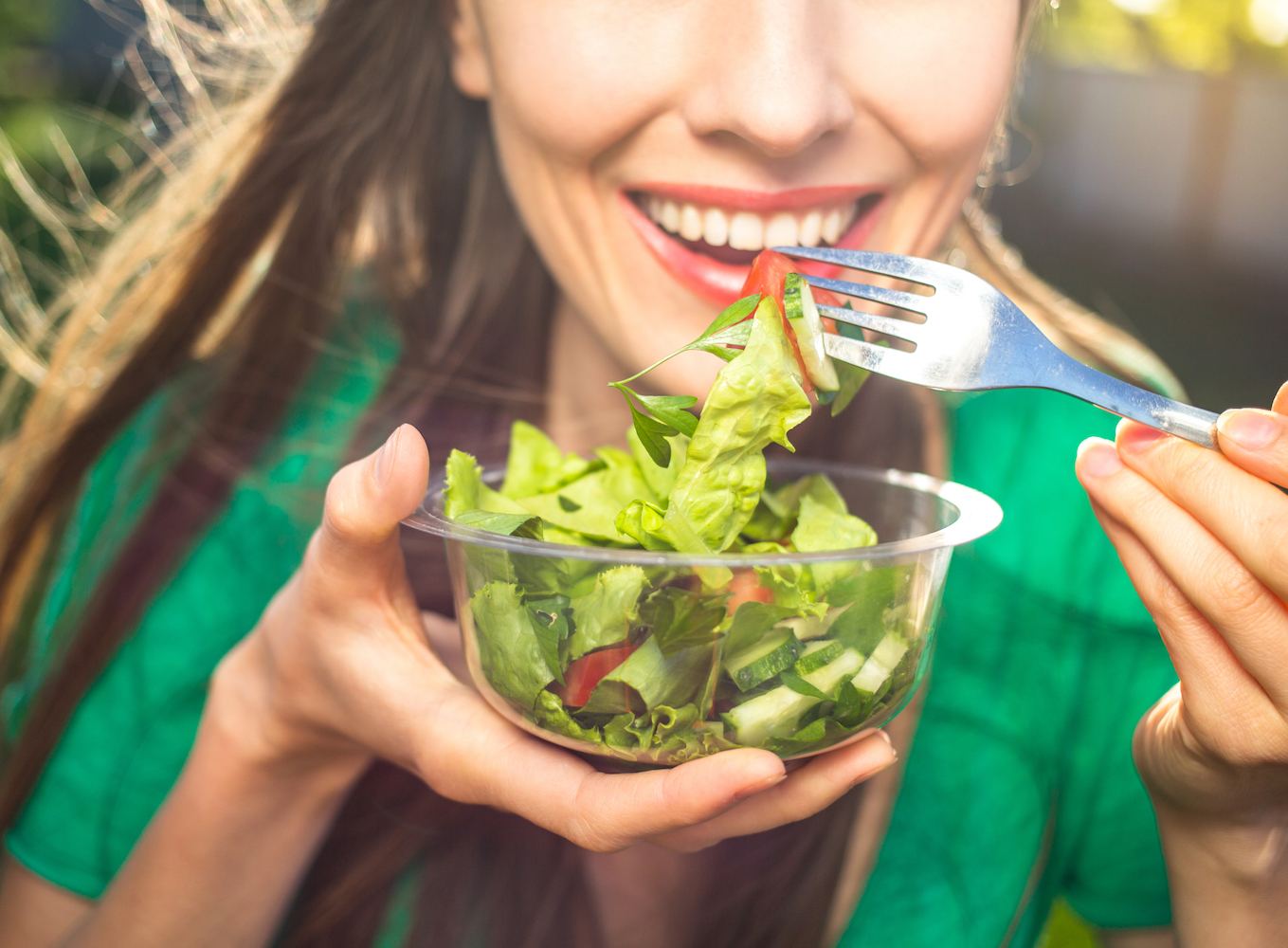Skin Cancer and Nutrition: Stop blaming the sun

By Dr. Marc Sorenson, Sunlight Institute
In the rush by dermatologists and sunscreen companies to demonize sunlight exposure as the universal cause of skin cancers, there has been a total disregard for another factor that strongly protects against, or strongly promotes, skin damage: What we eat. Nutrition, according to whether it is healthful or noxious, can have either profoundly positive or negative influences on the skin.
As an example, polyphenols are antioxidant phytochemicals that prevent free-radical damage and thus protect the skin. Polyphenols are prevalent in foods such as nuts, seeds, onions, green tea, pomegranates, apples, berries, cherries and other fruits and are also found in grape seeds, vegetables and dried legumes. They also exist in such nutrients as resveratrol and silymarin (milk thistle extract). These nutritional superstars reduce inflammation, quench oxidative stress and thereby prevent free-radical damage to DNA. They inhibit immunosuppression and diminish dysregulation of cellular signaling pathways, thereby reducing the potential for skin cancers.[i],[ii]
Particularly interesting is the fact that polyphenol-containing products such as grape-seed proanthocyanadins and green tea have been shown to inhibit the formation of skin tumors. Two researchers, writing in the Archives of Dermatological Research, made the following conclusion after a thorough review of literature regarding polyphenols and skin cancer: “Based on the epidemiological evidence and laboratory studies conducted using in-vitro and in-vivo systems, it is suggested that routine consumption or topical treatment of these polyphenols may provide efficient protection against the harmful effects of solar ultraviolet radiation in humans. 2”
In addition, it is known that the broccoli sprout extracts, replete in anti-cancer phytochemicals, reduce susceptibility to reddening and swelling of the skin in both animal and human models,[iii] as well as produce natural cell death (apoptosis) in cancer cells.[iv]
It is also known that diets high in omega-3 fats and low in omega-6 fats are associated with an inhibition of skin cancer.[v]
We conclude that protective nutrition would include the consumption of green tea, dark green vegetables such as broccoli, spinach and others, and the habit of eating dark berries, cherries and other such fruits. But there are other vegetables involved in the fight against skin cancer. We will discuss those vegetables in the next issue and show the remarkable anti-skin-cancer properties of coenzyme Q10. Until then, eat properly and keep sunning!
[i] Afaq F, Katiyar SK. Polyphenols: Skin Photoprotection and Inhibition of Photocarcinogenesis. Mini Rev Med Chem 2011 Oct 28. [Epub ahead of print]
[ii] Afaq F, Katiyar SK. Skin photoprotection by natural polyphenols: Anti-inflammatory, anti-oxidant and DNA repair mechanisms. Arch Dermatol Res 2010;302:71.
[iii] Talalay, P. et al. Sulforaphane mobilizes cellular defenses that protect skin against damage by UV radiation.
[iv] Tang, L et al. Potent activation of mitochondria-mediated apoptosis and arrest in S and M phases of cancer cells by a broccoli sprout extract. Mol Cancer Ther 2006;5:935-44.
[v] Lou, YR. Effects of high-fat diets rich in either omega-3 or omega-6 fatty acids on UVB-induced skin carcinogenesis in SKH-1 mice. Carcinogenesis. 2011 Jul;7:1078-84.
SmartTan.com news articles regularly report medical and scientific information to keep you abreast of current events related to UV light. This information is not intended to be used by any party to make unwarranted health claims to promote sunbed usage. Indoor tanning businesses are obligated to communicate a fair and balanced message to all clients about your products and services including the potential risks associated with indoor tanning. Contact your Smart Tan representative to find out more about what you can and can’t say in your tanning salon business.
© 2023 International Smart Tan Network. All rights reserved.
